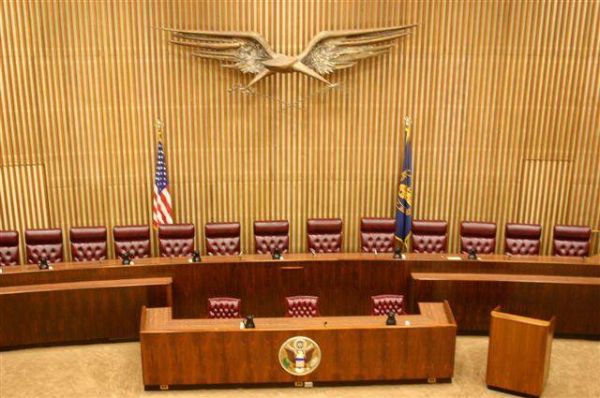US Courts Finally See The Politics of Restrictive Voting Laws


Contrary to popular belief, the right to vote was not guaranteed by the Constitution. The Constitution implies a voting process but neither describes it nor identifies who the voters will be. The 15th Amendment, ratified in 1870, during the post-Civil War reconstruction period, prohibited individuals from being allowed to vote on the basis of race, even if the person was a former slave. However, this amendment was meaningless in the former confederacy, as voting laws and physical intimidation were used to inhibit minority voting.
The Voting Rights Act
President Lyndon B. Johnson signed the Voting Rights Act into law in 1965. Since the 15th Amendment was largely ignored in the south, The Voting Rights Act was designed to enforce it. Due to a history of discrimination, nine states are required by the Voting Rights Act to have election laws pre-cleared by the Department of Justice. Those states are: Alabama, Alaska, Arizona, Georgia, Louisiana, Mississippi, South Carolina, Texas, and most of Virginia, as eight counties are exempt. All of these states have significant minority populations and with the exceptions of Alaska and Arizona, were all part of the confederacy during the Civil War.
Despite an amendment to the Constitution and a landmark piece of legislation, attempts to prevent minority voting persisted and still do to this day. The recent trend in GOP backed voting laws have attempted to make identification a requirement to vote and/or have attempted to reduce the opportunity to vote early.
Texas
In 2011, the state of Texas attempted to pass a law requiring a photo ID to vote but excluded student ID’s as an allowable form of identification but allowed concealed-carry permits. The Department of Justice took interest in this law because an estimated 600,000 Texas residents would have been prevented from voting.
The Department of Justice refused to pre-clear the proposed legislation because Texas failed to demonstrate the law would not have the effect of preventing citizens to vote on the basis of race. Texas filed a request for declatory judgment in the US District Court in Washington, seeking to have the Department of Justice’s determination overruled, allowing the law to take affect.
This August, a three-judge panel agreed with the Department of Justice’s determination by denying Texas’ request for relief, which made this the first identification voting law to be stricken by a court.
Ohio
A Republican drafted law sought to end early voting three days prior to the election. Typically, early voters support democrats. President Obama and the Ohio Democratic Party challenged the law in federal court. A US District Court judge ruled in Obama’s favor and the state of Ohio was prohibited from passing the law.
Ohio Secretary of State, Jon Husted, filed an appeal with the 6th District of the US Court of Appeals. A three-judge panel affirmed the ruling of the District Court. As a result, Secretary Husted filed a request with the US Supreme Court requesting the court to review the case, which was denied.
Florida
A 2011 Florida law had the effect of limiting typically minority-led voter registration drives by creating extremely difficult reporting requirements. As a result, new voter registrations of those identifying themselves as Democrats reduced dramatically. For example, in July of 2004 and 2008, newly registered Democrats slightly exceeded 200,000 each year.
However, from the time this law was passed in 2011 through July 2012, only slightly more than 11,000 new Democratic voters registered. The League of Women Voters filed an action alleging several legal violations and requested a preliminary injunction in Florida’s Northern US District Court. On May 31, 2012 the court granted the preliminary injunction. In August, by order of the court, the injunction became permanent. Since the preliminary injunction was issued, the number of newly registered democratic voters has again risen.
Florida also attempted to pass a law that reduced the number of days and hours for early voting. The Department of Justice denied pre-clearance, which Florida appealed to the US District Court in Washington. The appeal was denied and forced Florida to maintain the required number of hours for early voting. However, Florida reduced the number of days from 14 to 8.
US Courts Finally See The Politics of Restrictive Voting Laws
Since 1965, several states have passed laws that appear benign in title, but arguably have hidden motivations. Minorities, the elderly, and low-income populations, who are normally inclined to vote Democrat, have typically felt the effects of these laws.
For years, reviewing courts have denied challenges by groups whom these voting laws negatively impact. However, it seems that some federal judges are beginning to see these law's hidden purpose.
Despite some successes in challenging voting laws, several states have some type of identification law currently being enforced. For further information on this topic, please visit the Brennan Center For Justice.



